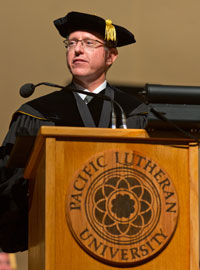Page 184 • (2,054 results in 0.051 seconds)
-

Unlocking the Magic of Colloidal Nanocrystals Associate Professor Andrea Munro and students Aidan Hopson ’24 and Rebecca Smith ’24 spend the summer studying colloidal ZnSe nanocrystals. Posted by: Marcom Web Team / August 11, 2023 Image: Double major in chemistry and environmental studies, Rebecca Smith ’24, chemistry major Aidan Hopson ’24, and associate professor of chemistry Andrea Munro examine how liquids and tiny particles affect nanocrystal growth, mastering the art of precise material
-
://studyabroad.sit.edu/advisors-faculty/seminars-abroad-for-faculty/ • School for Field Studies – www.fieldstudies.org Since 1980, the School for Field Studies (SFS) has been teaching students to address critical environmental problems using an interdisciplinary, experiential approach to education. Students on SFS programs study at research stations in Costa Rica, Turks and Caicos, Australia, New Zealand, Panama and Bhutan examining the interdependent cultural, economic, and ecological aspects of real-world
-

prompts our commitment not only to vocation but also to issues of diversity, justice, and sustainability. This month marks the 50th anniversary of the publication of Rachel Carson’s Silent Spring, which is credited with sparking the environmental movement in which PLU has been such a dedicated player. As much as Carson’s call to environmental action warned of danger, she also inspired us to care for the beauty of the earth, not merely its utility, when she noted that: “Those who contemplate the beauty
-
. (4) ANTH 368 : Edible Landscapes: The Foraging Spectrum - ES, GE The course examines foragers in Africa, North America, and Australia. Using classic ethnographic literature, it provides a cultural ecological perspective of foraging societies in a variety of environments. It also examines how foraging studies inform archaeological research and the challenges that these peoples now face in a rapidly changing world. (4) ANTH 370 : The Archaeology of Ancient Empires - ES, GE The origins of
-
research. Bachelors of Arts (BA) students present a capstone paper and seminar about a literature research topic. Each capstone student arranges for a faculty member to be their mentor. Capstone capstone seminars are presented during afternoons of the Chemistry Capstone Celebration Week in late April or early May each year. The Organic Special Projects Laboratory (CHEM 336)The Organic Special Projects Laboratory (CHEM 336) is a by-application-only alternative to the regular Organic II Laboratory
-
(ESCI 498-499) in their final full year. Prerequisite: at least 8 semester hours of 300-level or above courses in earth science. Pass/Fail. (1) ESCI 499 : Capstone: Senior Seminar - SR Culminating experience applying geological methods and theory through original literature or field or laboratory research under the guidance of a faculty mentor, with written and oral presentation of results. Required of all majors in their senior year. Prerequisite: ESCI 498. (4)
-
full-term courses. Instructors are encouraged to consider obtaining mid-semester feedback. Our colleagues on the Teaching Evaluation Task Force (2013-14) reviewed the literature on best practices for measuring effective teaching, and learned that, “response rates for end of term evaluations increase when a mid-course evaluation is also administered.” Mid-semester feedback is consistent with the Task Force’s recommendation for formative assessment, as it “can foster our professional development as
-
Professor of Philosophy and Literature, Whitman College, Washington Title: “Seeing Things Differently: Community and Theatre in Charlotte Delbo’s ‘Auschwitz and After'” Dee Simon, Baral Family Executive Director, Holocaust Center for Humanity, Seattle, Washington Simon is a second generation survivor. Her mother was interned in Theresienstadt during WWII. 10:30 a.m. – 12:15 p.m. – Reconsidering Anne Frank (Regency Room, AUC) For many people, their first encounter with studying about the Holocaust comes
-
to a field in which the analysis of process and perpetrator often precludes important questions about the victims themselves. About Dr. Patricia Heberer-RiceDr. Heberer Rice is one of the leading scholars on the Nazi Euthanasia murders. She has been based at the Museum’s Center for Advanced Holocaust Studies (former U.S. Holocaust Research Institute) since 1993. Heberer Rice completed her undergraduate degree in Historical Studies and German Language and Literature at Southern Illinois University
-
to a field in which the analysis of process and perpetrator often precludes important questions about the victims themselves. About Dr. Patricia Heberer-RiceDr. Heberer Rice is one of the leading scholars on the Nazi Euthanasia murders. She has been based at the Museum’s Center for Advanced Holocaust Studies (former U.S. Holocaust Research Institute) since 1993. Heberer Rice completed her undergraduate degree in Historical Studies and German Language and Literature at Southern Illinois University
Do you have any feedback for us? If so, feel free to use our Feedback Form.


